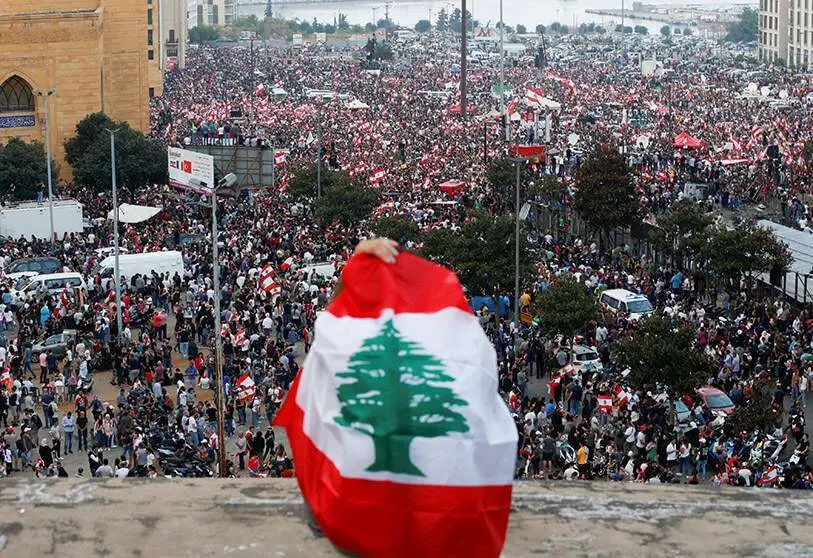UNICEF warns that more than 71 per cent of Lebanese at risk of losing access to water

Lebanon's economic crisis continues to affect all sectors and areas of the country. Now, a UNICEF report places access to water and water supply systems at the top of the list of concerns. According to the organization, more than four million Lebanese, or more than 71 per cent, are at "immediate" risk of losing access to safe water.
"The water sector is being destroyed by the current economic crisis in Lebanon, unable to function due to dollarised maintenance costs, water loss caused by unaccounted-for water, the parallel collapse of the electricity grid and the threat of rising fuel costs," explains UNICEF Country Representative Yukie Mokuo.
The UN agency has estimated that most water pumping "will gradually cease across the country in the next four to six weeks. Water utility providers can no longer afford essential spare parts to maintain the system. So if the public water supply collapses, the cost of water could increase by 200 per cent per month, UNICEF warns. Many households, already affected by other consequences of the crisis, will not be able to cope with this increase.

In 2020, some warning signs of a major future water problem began to emerge. In that year the price of bottled water doubled and there was a 35% increase in prices for private sector water supplies. Subsequently, power outages due to the deterioration of the electricity sector have disrupted water pumping and distribution.
Without urgent action, Mokuo warns, hospitals, schools and other essential public facilities "will not be able to function and more than four million people will be forced to resort to expensive and unsafe water sources, putting children's health and hygiene at risk. UNICEF's representative in Lebanon also points to the public health implications of such a collapse. "Hygiene would be compromised and Lebanon would see an increase in disease. Women and adolescent girls would face particular challenges to personal hygiene, protection and dignity without access to safe sanitation," she adds.

The Lebanese health system is also close to collapse. Constant power outages, coupled with the coronavirus pandemic, are severely affecting the country's hospitals. "All hospitals are less prepared than they were during the wave at the beginning of the year," Firass Abiad, head of a Beirut hospital, told AFP. With the onset of summer, cases of COVID-19 have increased due to the particularly contagious Delta variant. Many pharmacies in the country have closed due to lack of medicines.
This is not the first time UNICEF has provided alarming data on the situation in Lebanon. In early July it noted that "more than 30 per cent of Lebanese children have slept on an empty stomach in the last 30 days because they have not received enough meals". Children are the worst affected in this crisis; in addition to hunger, it has increased the risk of child labour and forced marriages of girls in the face of "families' need to meet their basic needs", warns a UNICEF report.
According to World Bank figures, Lebanon is experiencing one of the three worst economic and political crises in the world since the mid-19th century. The national currency has lost 90 per cent of its value against the dollar in the last 18 months and its GDP has fallen by 40 per cent since 2018. Add to this factors such as high inflation and severe shortages of basic commodities.

In addition to the financial crisis, Lebanon is mired in political deadlock. A caretaker government is running the country following the resignation of Prime Minister Hassan Diab after the explosion in Beirut port in August 2020. Saad Hariri, who was appointed prime minister in October 2020 with the aim of forming a new executive, has also recently resigned due to disagreements with President Michel Aoun.
In the hope of overcoming this political deadlock, consultations for the formation of a new government will begin on 26 July. This government will have to address the worrisome financial crisis and deal with street protests.







